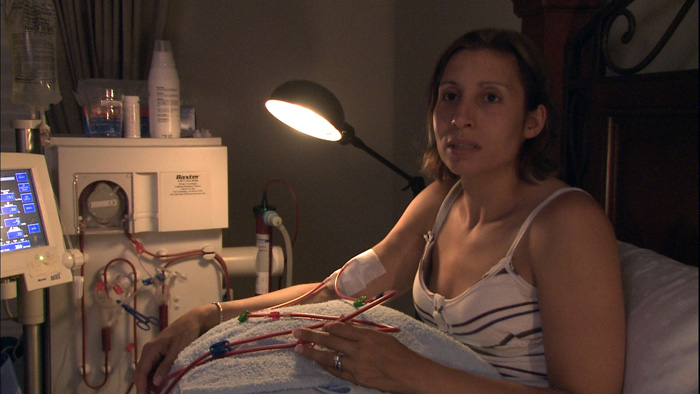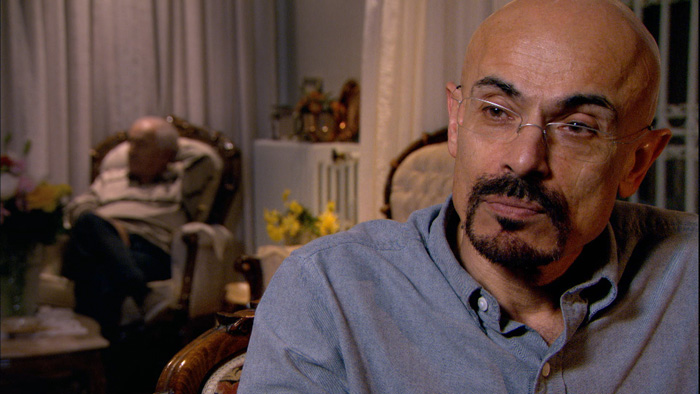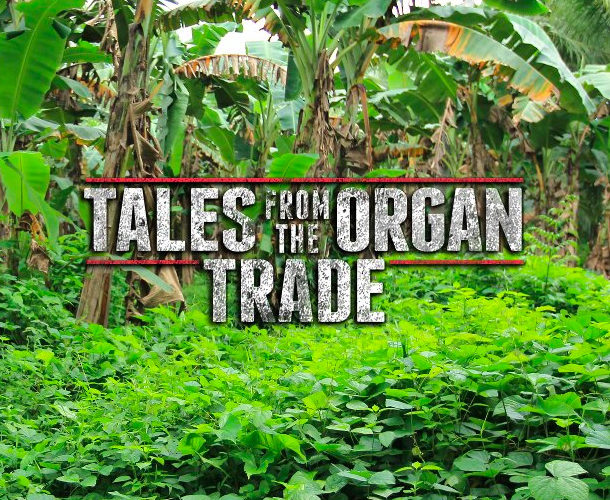With a name like Tales from the Organ Trade and its interesting casting selection of body horror maestro David Cronenberg as its narrator, I’m not sure one could blame me for expecting gruesome, unsanitary, back alley surgeons assisted by frightfully personalized scalpel sets straight out of Dead Ringers‘ repertoire. Doesn’t the logline—“A look into the underground world of trafficking human body parts”—conjure images of shady black market employees traveling the world with an Igloo cooler in hand? Kidnapping unsuspecting men and women off the streets and leaving them to wake up in an ice bath weak and scarred? This is the image government officials, mainstream media, and even Hollywood would like us to believe. In truth, however, it may not all be so nightmarish.

Director Ric Esther Bienstock isn’t trying to scare us with her documentary; she’s looking to force us into asking morally and ethically challenging questions. I believe she wants the kind of misconceptions I made to attract attention and get an audience to watch what is actually a very in-depth look into the shortcomings of our kidney transplantation system. Focusing on the salaciously covered case of “Dr. Frankenstein”—Turkish surgeon Yusuf Sonmez—Tales from the Organ Trade puts a face to the wealthy patients in need, the “exploited” Third World donators seeking cash compensation, and the medical practitioners willing to put the two together. Sonmez’s Medicus Clinic in Kosovo was a clean, sterile working environment led by an expert craftsman who saved lives. So where is the line separating good and bad?
I guess it comes down to the fact that good and bad don’t play as important a role on this subject as one would initially assume. The concept of giving someone in need an organ you can live without only exists at the moment under the labels of legal and illegal. We’re told an altruistic donation is acceptable but one for financial gain is not. Should this be so black and white a delineation? Sure, black market smugglers shouldn’t be allowed to raid some unsuspecting family’s house and slice them up to steal their flesh, but what about willing participants desperately in need of money to support their family? What about Filipinos Joboy and Eddieboy needing their kidneys to provide for their wives and children? Shouldn’t it be their choice?

It’s an extraordinarily gray area with immeasurable ethical ramifications the powers that be would love to scare us into thinking is a clear-cut, irrefutable decision. I too felt heavily in favor of the law when sitting down for the film until I realized how much more to the debate there was. Lawyers like Jonathan Ratel believe with good reason that Sonmez was at the center of a criminal syndicate preying on the poverty of exploited foreigners never given a choice. And while in other cases this may be true, the evidence acquired by Bienstock has me believing this one may be different. Perhaps Sonmez and his Nephrologist Zaki Shapira were simply doing their jobs to save lives. How could they refuse to operate if the necessary documentation was in order?
We are easily manipulated into believing one side of every story because it is the one shoved down our throats. Whether you find yourself changing your beliefs on the subject or not, Bienstock’s work should be applauded for taking the time and effort to dig deeper and expose the personal tales shoved to the background in lieu of grotesque statistics and skewed morality. I honestly couldn’t definitively tell you what I think because while laws shutdown organ thieves and the other horrific aspects not necessarily spoken about in this film, the knowledge they’re also potentially preventing thousands of people from living is a travesty. Are activists like Robby Berman hyperbolic in saying waiting lists could disappear as a result of government-sanctioned compensation? Yes, but there’s also some truth to the idea too.
Bienstock on her team have spent years following leads in the Sonmez case as well as regular men and women looking to survive. Whether its filming Torontonian Mary Jo Vradis’ nine-year fight alongside a mother and brother who are also on dialysis; Denver native Walter Rassbach’s search for salvation through a living donor via matchingdonors.com despite his wife’s insistence the “illegal” route is their only shot; or Philadelphian Jason Chamberlain who duped the system to sell his kidney on Craigslist, people backed against a wall will do whatever it takes if the medical world continues to fail them. Just look at the tale of Raul Fain who paid $120,000 to Medicus and lived to appreciate what Sonmez and his Moldovian donor did. There’s no regret, only thanks.

Tales from the Organ Trade lays its topic bare by visiting every avenue involved in this problem. Sure it glosses over some details while increasing exposure to others—what a coup to get Sonmez on camera—but it also never truly takes a side. In fact, one of my favorite aspects of the film is Cronenberg’s voiceover speaking about how “the production team” did something. There is a rare transparency at work that even shows how the film ruined one Filipino’s chance at earning the money needed to overcome his country’s poverty. Bienstock is on a mission to find the truth, give the accused a voice, and show how ambiguous a concept selling one’s body parts is. There are no easy answers and an out-of-sight-out-of-mind philosophy isn’t a solution.
Until you’re faced with the necessity to choose between death, painful waiting, or life for a price, I’m not sure you can justifiably say you have the answer. Regulation probably will never eliminate the black market, but it could save the lives of people on both sides of the equation. The fact the medical branches of our government stands so staunchly against even considering change is a disconcerting notion to reconcile. Right or wrong, allowing citizens of the world to make their own decision isn’t a horrible idea. Tales from the Organ Trade successfully plants the possibility in our heads to wonder whether a middle ground will one day be reached.
Tales from the Organ Trade screens at Hoc Docs April 28, 29, and May 2.

